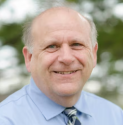2025 Professional Counsellors Network
- Image

The European Professional Counsellors Network is for professional counsellors and professional counsellors in training. This Network is a unique gathering of people with a Kingdom calling to soul care—specifically the mental, emotional, and spiritual health of others. Our theoretical training may include cognitive, behavioral, attachment, relational, or family systems. It may be within Christian, non-Christian, or even anti-Christian contexts, whether in academic, clinical, residential, or social systems settings.
The programme will feature lectures, small group discussions, and case studies. Each lecture will be followed by a time of questions and answers. Case studies will also offer break-out groups to provide a more participatory style of learning. Prior preparation will be set for all applicants.
2025 Network Theme - Knowing God, Self, and Others Better: A Christian Approach to Assessment
The Gospel calls us to love God and our neighbor as our ourself, based on Christ’s redemption. But we can’t love what we don’t know. So, Christians have historically paired knowing with loving. Contemporary psychology has advanced the quest to know ourselves with its attempts to assess features of the human soul like personality, intelligence, and psychological disorders through measurement. However, the most important features of human life are beyond measure, like integrity, spiritual growth, glory, and love. Consequently, a Christian approach to assessment supports the use of sound psychological tests but recognizes that the fullest knowing and loving of God, self, and others involves the Spirit and the heart.
What Network Participants Are Saying
- "I have learned so much from the Professional Counselling Network that I have started a mental health Network at the Albanian Leadership Forum, which I have led for the past six years. I keep attending ELF to learn more and to share back in my country."
- Kristi Kola, Psychiatrist, Albania - "I have felt so deeply and fully loved through the teachings the Forum's Professional Counsellors Network has provided. I have felt heard, listened to, and challenged. The Forum has not only better equipped me for my work by making me ask deeper questions about God and sharing it with others in my workplace. It has also enabled me to know and experience and grow a desire to know God’s love in an even deeper way. I am excited and eager to see where the desire and ideas that stirred in my heart lead to in the work done to advance His kingdom in Slovenia and beyond."
- Anja Zevart, Psychiatry Resident Doctor, Slovenia - “Being at the European Leadership Forum is so helpful for me. The Professional Counsellors Network is equipping and enabling me to better approach the struggles that accompany being a counsellor. I’m fed and provided with lots of resources, shared knowledge, and updated and validated approaches in our field. These new resources and knowledge help me to deliver better Christ-centered therapy in order to help my clients in need.”
- Lidia Leahu, Professional Counsellor, Romania
Network members should be working in the field of psychology for a minimum of 10 hours a week or with a minimum of 7 clients. Students and interns may apply if they are full time students. This Network will examine the biblical framework for Christian counselling and will involve daily lectures as well as case study discussions.
Network Leadership
Network Speakers
Rev. Stephen P. Greggo, PsyD, was Chair and Professor of Counseling at Trinity Evangelical Divinity School, Deerfield, IL, for 28 years. He is a licensed psychologist, ordained to Christian ministry, and a guest preacher. He has published three books with InterVarsity Press: Assessment for… Read more
Eric L. Johnson is professor of Christian Psychology at Houston Baptist University, serving in the Gideon Institute of Christian Psychology & Counseling. He taught psychology for 10 years at University of Northwestern and counseling for 17 years at Southern Baptist Theological Seminary. In… Read more
Jelena Sivulka hails from Serbia, where she was born and raised. She obtained her master's degrees in psychology and theology from her homeland. Thirty years ago, she embraced Christianity, igniting a passion for ministry alongside her husband Greg. Together, they have been instrumental in… Read more
Network Programme
Sunday, 18 May
The search for identity and purpose is indeed unique to humanity—a quest woven into the fabric of our existence. As John Calvin insightfully noted, "Nearly all the wisdom which we possess, that is to say, true and sound wisdom, consists of two parts: the knowledge of God and of ourselves." This statement suggests that a true understanding of our own identity cannot be separated from a deeper relationship with God. The more we know Him, the more we come to know ourselves, for we are created in His image. What are some of the tools that help us discover ourselves and shape us into His likeness?
Modern psychology and psychiatry are based in the worldview of naturalism, which is why they view humans reductionistically, focusing exclusively on their biological and psychosocial features. Historic Christianity, by contrast, has tended to view humans more holistically, as highly complex, necessarily mysterious creatures, that have biological and psychosocial features, as well as ethical and spiritual features, that cannot be entirely reduced to biopsychosocial processes. Consequently, case conceptualization for Christian therapists involves a more comprehensive assessment that includes ethical and spiritual considerations. A sample case conceptualization will be presented, illustrating this four-dimensional framework.
Monday, 19 May
Assessment in counseling—like its biblical counterpart, discernment—is an ongoing and dynamic routine to encourage movement toward genuine change. Becoming a better therapist or pastoral caregiver requires a deliberate strategy on two fronts: implementing assessment into care that establishes benchmarks to track change (practice-based evidence) and entering a helping partnership as a comforted comforter in search of wisdom to stimulate spiritual formation (empirically supported relationship). In this session, a flexible assessment structure will be provided.
A case study will be presented, and participants will work collaboratively on developing a comprehensive case conceptualization, using the four-dimension framework, including an initial treatment plan that will include reference to ethical and spiritual goals.
Tuesday, 20 May
Beyond tools and techniques, it takes an understanding of the heart to shape living souls. The core of our helping conversation is cultivating a theological imagination in the heart that recognizes the great Theodrama (God’s active creation care), secures our inner narrative to that meta-narrative, and guides our attitudes and actions to perform the Gospel. The intent is to extend care outcomes beyond symptom relief or problem resolution into the domain of character development, life narrative clarity, and faith enhancement. In this session, we will discuss how to take our assessments and align them with a biblical grounding for wisdom cultivation.
The assessment of spiritual needs in people struggling with mental health issues is a critical yet often overlooked aspect of holistic care. Individuals facing mental health challenges frequently experience spiritual distress, questioning their faith, purpose, and relationship with God. By assessing their spiritual needs, caregivers can address feelings of isolation, guilt, or hopelessness, offering support that integrates both emotional and spiritual well-being. A comprehensive assessment by Christian counsellors includes exploring their client’s beliefs, sources of spiritual strength, and the impact of their mental health on their faith, ultimately providing personalised care that fosters healing in both mind and spirit.
Wednesday, 21 May
Many exemplary Christians over the centuries have offered a model of psychospiritual growth, including such luminaries as Augustine, Bernard of Clairvaux, Thomas Aquinas, and John Newton. Building on the main themes and wisdom of their models, and incorporating some insights from contemporary psychology, we will reflect together on God’s design plan in psychospiritual development across the lifespan and whether it follows a stage pattern.
Christian counsellors can strategically tap into the extensive contemporary empirical research into spiritual resiliency and struggle to forge a framework to further member care and formation. Specifically, six patterns of faith diminishing spiritual struggle have been identified (Divine; Demonic, Moral imperfection, Interpersonal, Doubt, and Ultimate Meaning). Given the pluralistic assumptions of this research, a translation into Christian worldview is offered. Assessment techniques for Christian counsellors to discern these disorienting inner cycles are coupled with recommendations to guide the helping partnership and its formative dialogue.



